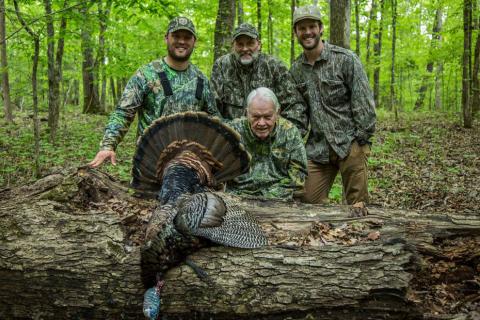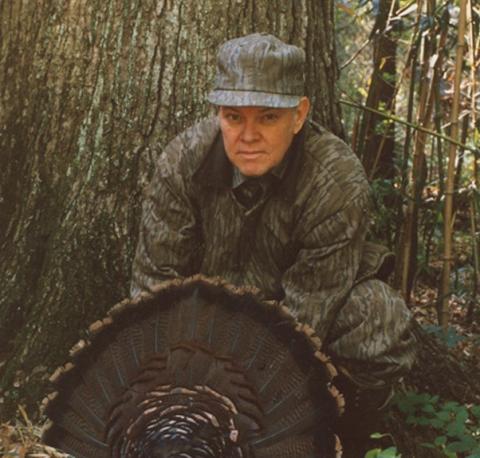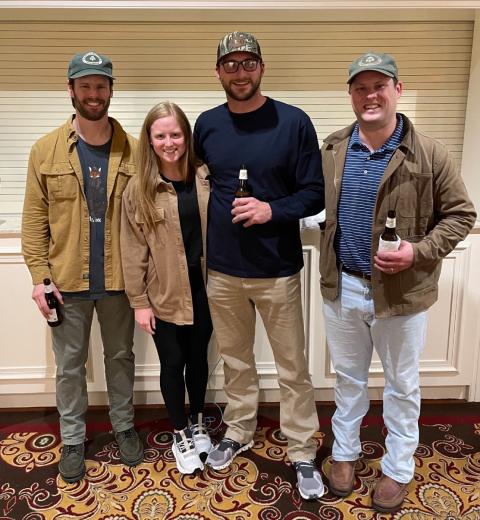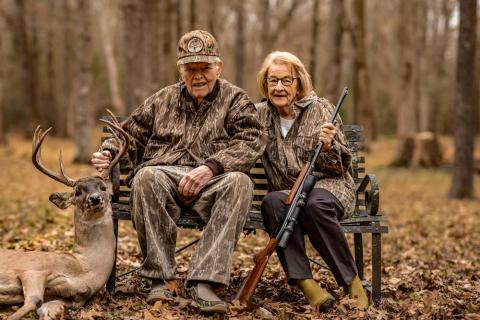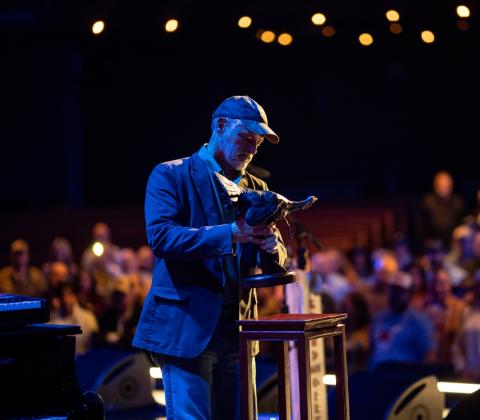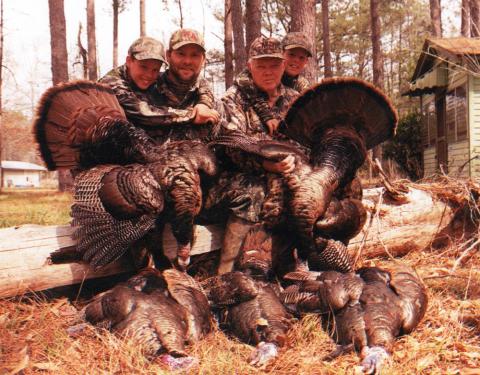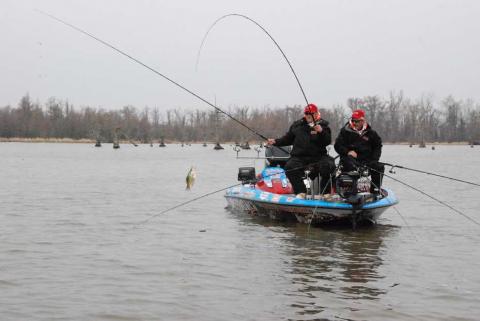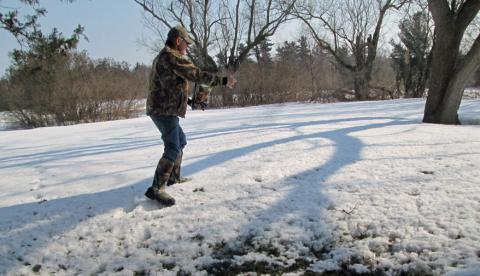provided by John E. Phillips
What to Say to Late Season Ducks and When to Say It
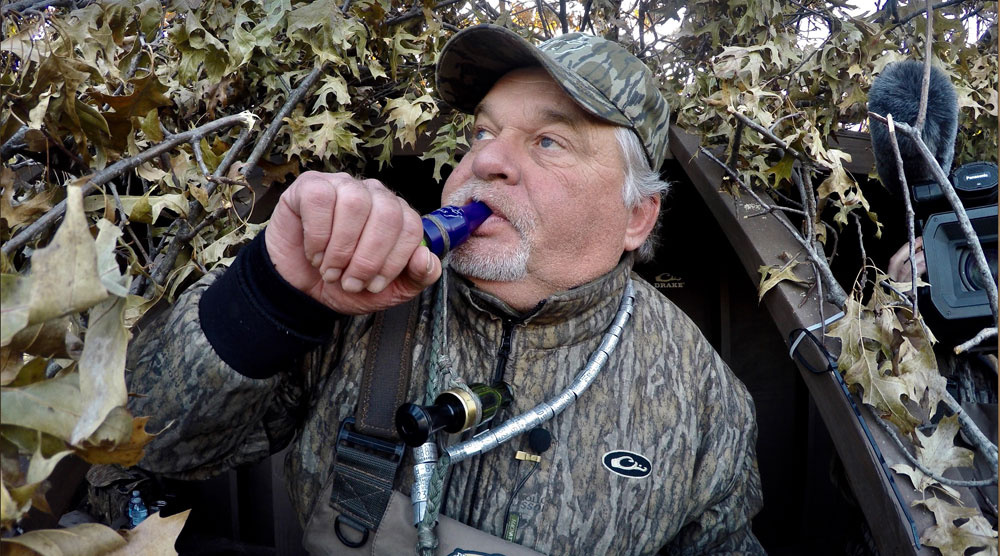
Mossy Oak Waterfowl Pro Barnie Calef from Cedar Rapids, Iowa, is a leading authority on waterfowl hunting and has won three World Duck Calling Championships. Calef travels the nation teaching waterfowling seminars for many of the nation’s leading outdoor companies. “I can’t remember when I didn’t wear Mossy Oak camouflage,” Calef says. “I believe in it, and that’s why I wear it.” Calef masterfully calls ducks with his Calef Calls Inc. brand. The migration has about ended, and we wanted to know how Calef finds, calls, decoys and takes ducks in his home state of Iowa.
I call late-season ducks pretty much the same way I call ducks all season long. But I may call a little bit less in the late season. The real secret to successful duck calling is to tell the ducks what they want to hear, when they want to hear it. And, when the ducks respond positively to the calls you’re giving them, then you know those sounds are what they want to hear. If the ducks are coming at your blind from 150 yards out, aren’t looking at your decoys, their wing beats aren’t interrupted, and they’re not dropping altitude, then they don’t want to hear what you’re telling them.
If they hear your hen greeting call, their wing beats become erratic, and they’re looking at your decoys and blind, then you know they want to hear what you’re saying. If the ducks pass over your decoys and your blind but are either too high to shoot or too wide from your blind to shoot, let the ducks get downwind of the blind. Then I blow the exact same call I’ve blown when I’ve gotten the ducks’ attention originally. Now that same call sounds like the greeting call that I use to get the duck’s attention. When I’m blowing the comeback call, which I define as an aggressive greeting call, these two calls are given the same way except they are given at different times. The greeting call is given when the ducks approach the blind, and the comeback call is given when they’re leaving.
The very first call I give to ducks when they are downwind of the blind is the same greeting call that I’ve used to get their attention. If the ducks don’t respond by changing their wing beats and turning, I’ll give them the same greeting call as I have the first time but speed up the rhythm of the call. Now, the greeting call has become the comeback call. I get more aggressive and call louder and harder. The second time, I’ll call to the ducks when they are downwind. If they like your comeback call, you’ll see their body language change. Their wing beats will be more interrupted, and they will turn and start coming back toward your blind.
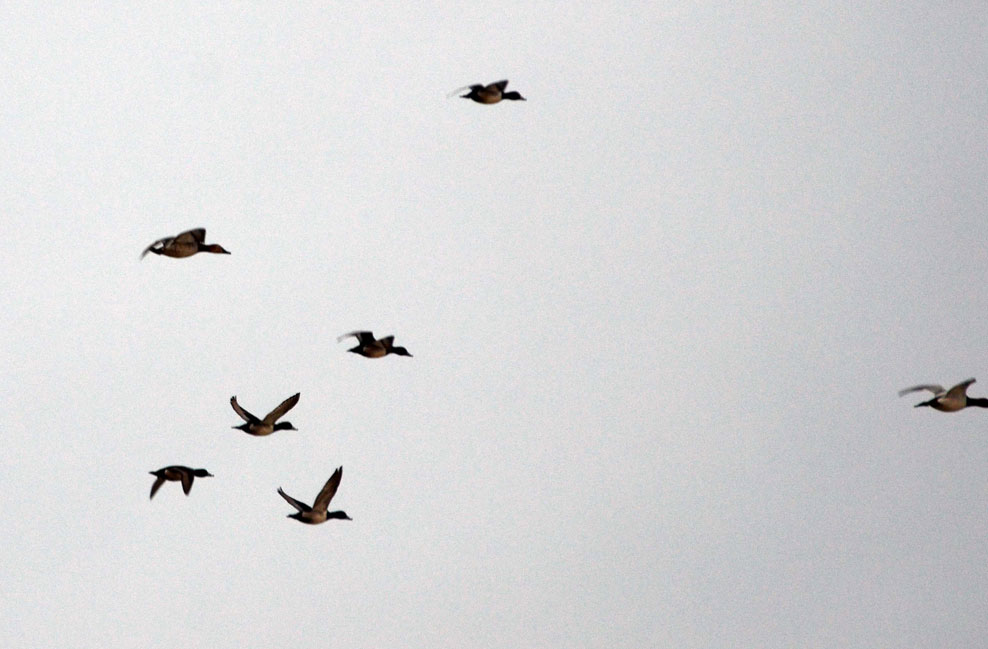
I don’t give up on the ducks if they don’t act like they’ll return to the blind when I give them the second set of calls. I’ll give that same call sequence for the third time, only this time faster, more aggressive and louder just to make sure that the ducks are hearing my calls. If they don’t turn and come back, I don’t call again after the third series of calls.
Another rule I have is when the ducks are swinging back toward my decoys; I call less. If I see the ducks are turning back and returning to my decoys, then I don’t call at all. This may be one mistake some duck hunters make. They don’t shut up when the ducks are already doing what the hunter wants them to do. So, I don’t call to the ducks unless they’re leaving my decoy spread, and then I jump on them again with some hard, loud calling. When the ducks appear to be coming to drop into my decoy spread, I don’t give a feeding call. If I give them anything, it will be one or two single quacks. Remember, we’re talking about late-season ducks. They’ve seen decoy spreads and heard every duck call from every manufacturer throughout the season. In the early season, I’ll call much more than I do in the late season. If you’ll watch other hunters call ducks, often when the ducks turn and start coming back to the blind, you’ll hear the hunters giving a feeding call.
But, if you’ve watched and listened to ducks in the wild, they don’t do that. The best way to call ducks in the late season is to do what ducks naturally do in the late season. My experience has been that they don’t give a feeding call when there are ducks in the air returning to the blind. If you go to a park where there are ducks on the water – say 300 or so – and a cloud of 300 to 500 ducks are in the air, you’ll notice that those ducks on the water don’t do any calling when the ducks in the air are coming to them.



















